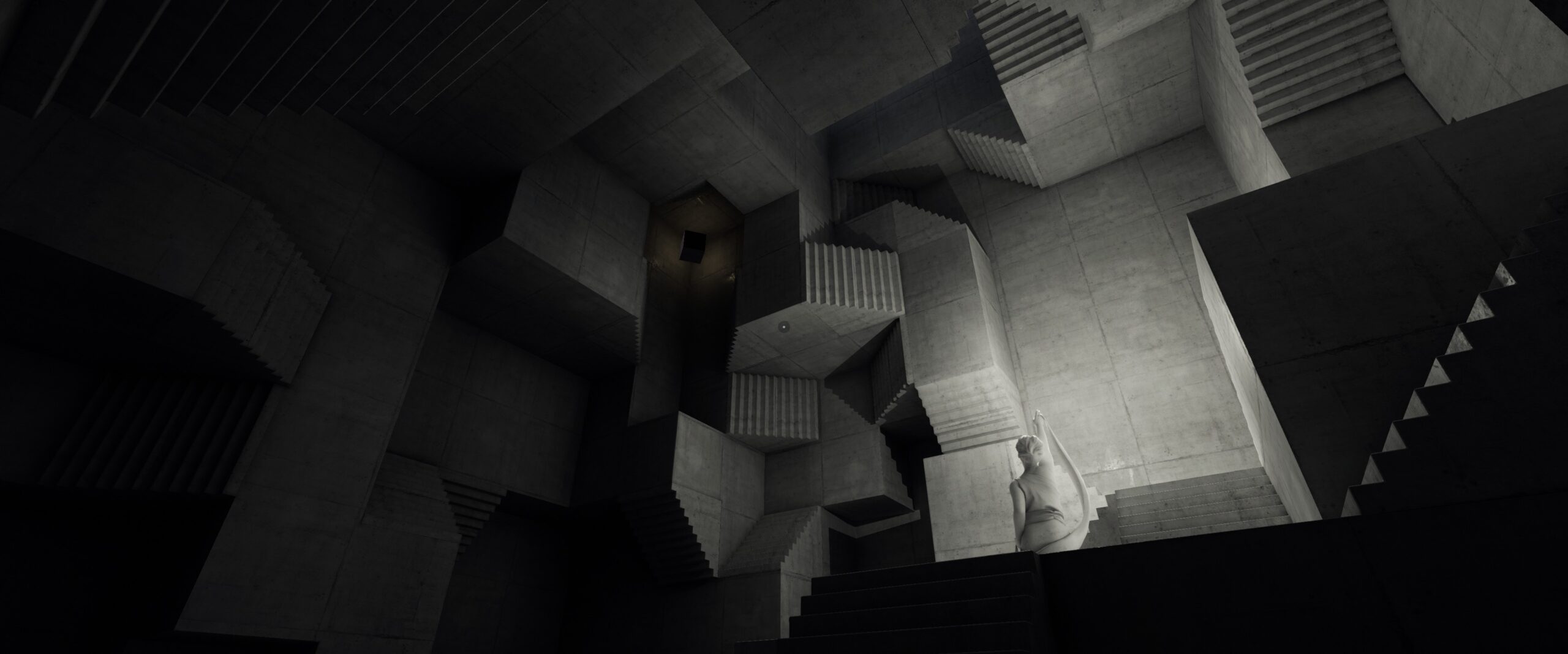The concept game idea appears to be catching steam, with a lot of aspiring developers releasing a prelude or mostly-complete title with the idea of generating buzz, getting feedback and hopefully securing a few wishlists for the full game. It’s a slightly different concept to a demo, which was typically used to generate interest for a fully fledged game that already existed and was released alongside the full title. Whilst few are charging for them I’d readily encourage them to as I think it’s a far better model to secure some funding than Early Access or Kickstarter, mostly because it then puts the dev right back to where they need to be: working on the game. Cognition Method: Initiation is the latest concept game to grace my path and whilst it’s not much to write home about now, there’s the threads of something good in here which need to be explored further.

The Earth is on its last legs, destroyed by humanity beyond the point of repair. It seems that there was no hope until scientists discovered the Cube, a mysterious structure floating in space with unknown origins. There’s hope that the Cube will hold some answers to Earth’s problems and numerous teams have been sent to it in the quest to uncover any secrets it might have. None have come back however and you’re the last person that Earth is willing to send. You’ll soon discover why no one has come back from this place as the Cube puts forward otherworldly challenges to any who would cross its borders, refusing to let anyone go who is not up to the task.
The art style is minimalist and sterile, much inline with the sci-fi setting. Whilst the models and texturing is somewhat basic there’s definitely good use of modern lighting effects that elevates the run of the mill modeling work above its station. As you’d expect then performance is pretty good, although there’s a couple areas that are obviously not optimised as the FPS drops through the floor and doesn’t recover until you get to a new section. Given that this appears to be the developer’s first title (although not the team’s first foray into game development) issues like these are somewhat expected, but definitely something that they’ll need to look hard at for the full release.

The game’s mechanics aren’t anything particularly revolutionary, hinging on the now fairly standard gravity/perspective manipulation tropes that we’ve all come to know and love. Like all games that use mechanics like this they have their own interpretation of how these things should operate, so most of the challenge comes from understanding how their particular brand of gravity manipulation is meant to work. In its current form it’s very basic, mostly just moving things between levels or switching your perspective around as you stick to varying surfaces. Suffice to say it’s not much of a challenge but then again I don’t believe it’s meant to be at this stage.
The story is interesting, if a little too inspired by its cited source material. It’s understandable that there’s not a lot of room to let the story breathe in a game that’s supposed to be under 30 minutes long, but given I’ve played recent examples that have managed to do quite a lot in the same amount of time there’s definitely some room for improvement here. Also, whilst it seems every story set in space always has to go all “Event Horizon” on us at some point it’s not a trope that I think is ever done particularly well and the small bits of horror included here could be better delivered through the use of psychological thriller narrative mechanics.

With all this said you’d probably be thinking that I wouldn’t be interested in the full game but the opposite is true. Whilst there’s definitely a lot to improve on here there’s enough of the basics done to a good enough standard to make me interested to see what the developers can do with a full release. That, in a nutshell, is the essence of what the concept game should be: something that gets enough of the core game out there to generate interest and to highlight the more glaring flaws in your thinking before fully committing to what the full product will be. In that respect Cognition Method: Initiation does extremely well and I’m looking forward to seeing how the full game changes and improves on the formula they’ve developed.
Rating: 7.5/10
Cognition Method: Initiation is available on PC right now for free. Total play time was 20 minutes with 37% of the achievements unlocked.



